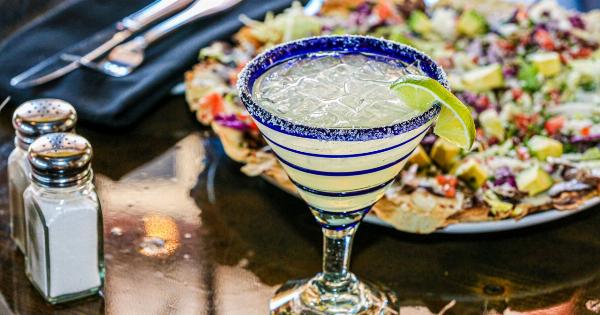If you desire healthier and radiant skin, it’s crucial to pay attention to what you consume. Your diet plays a significant role in the appearance and overall health of your skin.
While there are several foods that can promote good skin, there are also certain foods you should avoid. We have consulted with expert dermatologists to compile a list of 10 foods that you should quit eating if you want to improve your skin health.
1. Sugar
Sugar is notorious for causing inflammation in the body, including the skin. It promotes the production of insulin and androgen hormones, which can lead to excess oil production, clogged pores, and acne breakouts.
Sugar also weakens the collagen and elastin fibers in the skin, resulting in premature aging and wrinkles. Cutting down on sugary foods and beverages can help you achieve clearer and younger-looking skin.
2. Processed Foods
Processed foods usually contain high levels of unhealthy fats, refined carbohydrates, and artificial additives. These ingredients can trigger inflammation in the body and disrupt the balance of good bacteria in your gut.
When your digestive system is compromised, it often reflects on your skin, causing issues like acne, dullness, and uneven tone. Opt for whole, unprocessed foods to nourish your skin from within.
3. Dairy Products
Many dermatologists believe that dairy products, such as milk and cheese, may contribute to skin problems. Dairy contains hormones that can stimulate oil production and clog pores, leading to acne breakouts.
Additionally, some individuals may have a sensitivity or allergy to dairy, which can manifest in skin conditions like eczema or rosacea. Experiment with eliminating dairy from your diet to see if it makes a difference in your skin’s appearance.
4. High-Glycemic Index Foods
Foods with a high glycemic index, such as white bread, white rice, and sugary snacks, can cause your blood sugar levels to spike rapidly. This spike triggers a cascade of events in the body, including increased production of insulin and inflammation.
Inflammation can worsen existing skin conditions like acne and rosacea, leading to redness, irritation, and breakouts. Opt for low-glycemic index foods like whole grains, fruits, and vegetables for healthier skin.
5. Vegetable Oils
While some vegetable oils are marketed as healthy options, most of them are high in omega-6 fatty acids. An imbalance in the ratio of omega-3 to omega-6 fatty acids can promote inflammation in the body.
Inflammation can manifest as acne, eczema, and other skin conditions. Opt for healthier alternatives like olive oil or coconut oil, which have anti-inflammatory properties and can benefit your skin.
6. Alcohol
Excessive alcohol consumption can dehydrate your body, including your skin. Alcohol also dilates blood vessels, causing redness and flushing.
Moreover, alcohol is a toxin that puts additional stress on your liver, impairing its ability to detoxify the body effectively. Reduced liver function can lead to skin problems such as acne, wrinkles, and uneven skin tone. Moderation or abstaining from alcohol altogether can help you achieve brighter and healthier skin.
7. Caffeine
Caffeine is a diuretic, meaning it can dehydrate your body and skin. Dehydration can make your skin appear dry, dull, and less supple.
Additionally, caffeine can stimulate the production of stress hormones, leading to increased oil production and exacerbating acne. While a moderate amount of caffeine is typically fine, excessive consumption can have negative effects on your skin. Ensure you drink enough water to counteract the dehydrating effects of caffeine.
8. Salty Foods
Consuming excessive amounts of salt can cause your body to retain water, leading to bloating and puffiness. Salt can also dehydrate your skin, making it appear dry and lackluster.
Moreover, a high-sodium diet can worsen inflammatory skin conditions like acne, psoriasis, and eczema. Opt for low-sodium alternatives and use herbs and spices to add flavor to your meals, enhancing your skin’s health and appearance.
9. Spicy Foods
While some people enjoy the kick that spicy foods provide, they can trigger skin issues for others. Spicy foods can dilate blood vessels and cause flushing or redness in the skin.
They can also aggravate existing skin conditions like rosacea, resulting in increased sensitivity and inflammation. If spicy foods seem to affect your skin negatively, it might be best to limit your intake and observe the changes.
10. Gluten
For individuals with gluten sensitivity or celiac disease, consuming gluten can lead to a variety of skin problems. Gluten can trigger inflammation in the body, which may present as rashes, itchiness, or hives on the skin.
Some people with gluten intolerance may also experience acne or eczema when they consume gluten-containing foods. If you suspect gluten might be affecting your skin, consult with a dermatologist or allergist to determine if you should eliminate it from your diet.
By avoiding or minimizing these 10 foods, you can promote healthier and more vibrant skin. However, keep in mind that everyone’s skin is unique, and individual reactions may vary.
It’s always a good idea to consult with a dermatologist or healthcare professional to address your specific skin concerns and develop a personalized approach to skincare and diet.






























